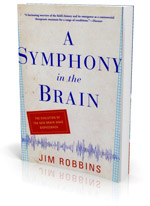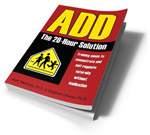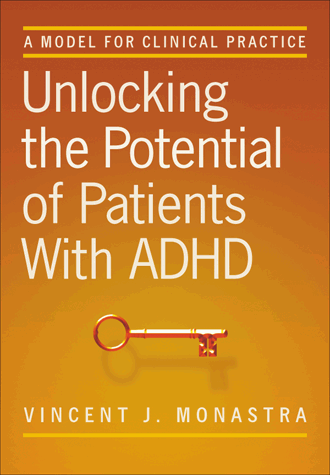 Neurofeedback or EEG biofeedback is a way of providing unique neurophysiological information to a person in a way that enables them to learn from it and change it. Electrical signals from the patient’s brain, not usually available for viewing, are made available. They are then provided with education about the brainwaves and their relationship to behavior and function. They come to know their unique patterns of brainwave activity and practice changing activity and connecting it to internal experience. As they experience the unique effects of changing their own brainwave activity, behavior also changes. The process involves developing both basic and deep understandings of oneself and one’s function. While this explanation makes neurofeedback sound like a highly cognitive process, it really is less than it sounds. Because the learning that takes place does so at the level of fast electrical signals, learning occurs almost effortlessly, so that even individuals with severe cognitive impairments learn and change.
Neurofeedback or EEG biofeedback is a way of providing unique neurophysiological information to a person in a way that enables them to learn from it and change it. Electrical signals from the patient’s brain, not usually available for viewing, are made available. They are then provided with education about the brainwaves and their relationship to behavior and function. They come to know their unique patterns of brainwave activity and practice changing activity and connecting it to internal experience. As they experience the unique effects of changing their own brainwave activity, behavior also changes. The process involves developing both basic and deep understandings of oneself and one’s function. While this explanation makes neurofeedback sound like a highly cognitive process, it really is less than it sounds. Because the learning that takes place does so at the level of fast electrical signals, learning occurs almost effortlessly, so that even individuals with severe cognitive impairments learn and change.
How can Neurofeedback help?
Neurofeedback training improves attention, cognitive abilities, and emotional regulation. Neurofeedback can help to reduce or eliminate a number of common symptoms such as anxiety, stress reactions, depression, sleep problems, headaches, migraines, and emotional distress. Neurofeedback can also help relieve a variety of conditions such as mood swings, PMS, and organic brain disorders including seizures, stroke, and traumatic brain injury.
Neurofeedback is training in self-regulation. Good self-regulation is necessary for optimal brain function. Self-regulation training enhances the function of the central nervous system and thereby improves mental performance, emotional control and physiological stability.
Does Neurofeedback cure symptoms or conditions?
In the case of organic brain disorders, it is just a matter of getting the brain to function better rather than curing the condition. In the case of disregulation there really is no disease to be cured. Where disregulation is the primary issue, self-regulation is likely the remedy. But the term cure again would not apply.
Who can benefit from Neurofeedback?
Individuals of any age can benefit from EEG training. Neurofeedback can help a variety of childhood problems including bedwetting, nightmares, attention deficits and other forms of disrupting and disturbing behaviors. Neurofeedback can assist adolescents who might struggle with anxiety and depression, or drug and alcohol use. Neurofeedback can help maintain good brain function as we age. And peak performers use EEG training to enhance their abilities in sports, business and the arts.
How is Neurofeedback done?
Sensors are attached to the scalp with EEG paste to record your brainwaves. It is painless and does not involve the application of any voltage or current to your brain, so it is entirely non-invasive.
A computer processes the brain waves and extracts certain information from them. The ebb and flow of your brain waves and the specific information obtained from them, are shown back to you in the form of a video game. You are instructed how to play the video game using only your brainwaves. (Everyone can do it.) The specific brain wave frequencies we reinforce and the sensor locations on the scalp are unique to each individual.
What if I’m on medication?
Psychiatric medications affect the brainwaves and the brain’s ability to make intentional changes because they constrain the brain to behave in particular ways. Because neurofeedback involves changing the brainwaves through learning, medication which makes the brain behave in a certain way can affect the learning that takes place with neurofeedback training. As neurofeedback proceeds and learning changes the brain, the effect of the medication also changes. A more normally functioning brain does not have the same requirements as a less normally functioning brain. A common patient scenario is that they begin neurofeedback with their medications as prescribed. As their neurofeedback training proceeds, they feel and function better, but then (because their brain has changed) they start to have negative symptoms secondary to overmedication effects. If they are working with a psychiatrist who understands how neurofeedback works to affect learning in the brainwaves, medication dosages are reduced or changed to accommodate new and improved function. If not, they may be given increased dosages to deal with negative symptoms, which further decreases learning and works against neurofeedback training. Before beginning neurofeedback training, it is very important that you talk with your psychiatrist and discuss with her or him a plan for dealing with brain changes during neurofeedback training with appropriate and informed medication changes.
If Neurofeedback can do so much, why haven’t I heard about it before?
Neurofeedback is not yet taught in most medical schools or psychology graduate programs. Many professionals are therefore unaware of the power of this technique. The field is growing rapidly and as it does more professionals will be informed and educated in neurofeedback.
For More Information on Neurofeedback:

A Symphony in the Brain:
The Evolution of the New Brain Wave Biofeedback
By Jim Robbins

ADD: The 20-Hour Solution
Training Minds to Concentrate and Self-Regulate Naturally Without Medication
By Mark Steinberg, PhD and Siegfried Othmer, PhD

Unlocking the Potential of Patients With ADHD
A Model for Clinical Practice
By Vincent J. Monastra, PhD
When Can I Get An Appointment?
First-time appointments to discuss whether or not neurofeedback may be your best option can typically be scheduled within a few months. However, appointments for regularly scheduled neurofeedback may take longer. We currently maintain a waiting list for new neurofeedback patients. Because appointment times each week are guaranteed, certain slots become available as others complete their neurofeedback training.




